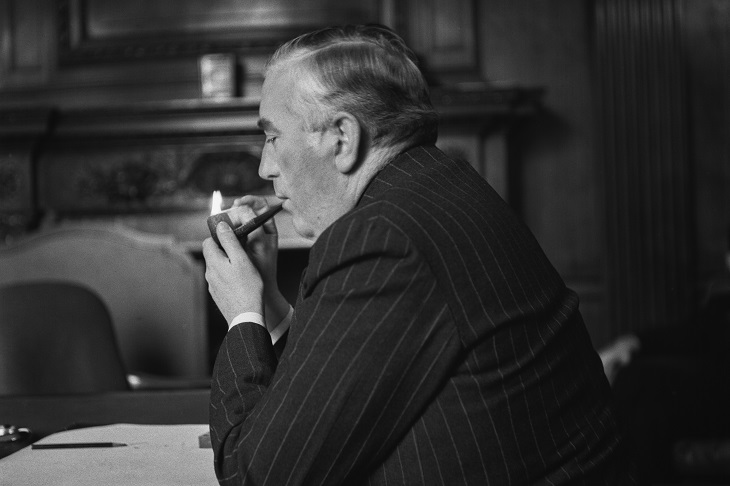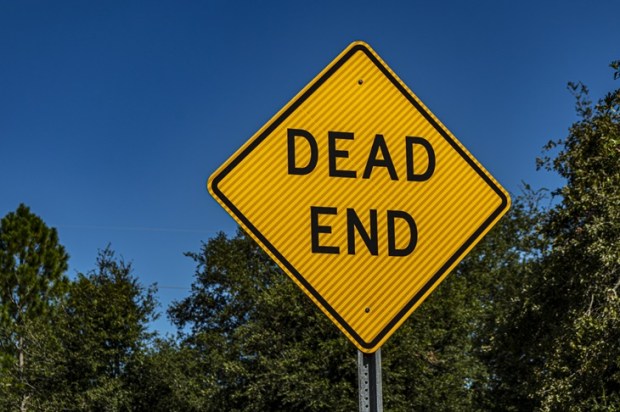Now the federal election is over, the triennial festival of finger pointing and bloodletting of the losing party can commence.
Over the coming weeks and months, factional heavyweights from the Liberal Party’s moderate and conservative wings will battle it out for control of the party and its policy direction over the next three years. In the back rooms and corridors of power, they will try to redefine the Liberal Party in an attempt to retake government in 2025, or at the very least, regain some of those lost seats in the last poll.
The moderates will point to the rise of Teal Independents and argue that the party has not kept up with the times and must lurch to the left on issues of climate and energy to reconnect with the average voter.
Conservatives will point to those same Teals and contend that lurching to the left was the problem in the first place, and that no viable alternative was presented to the electorate.
So, who is right? Which faction has mandate over the party’s soul?
The answer is neither, and the question itself is pointless.
Allow me to explain.
When Sir Robert Menzies founded the Liberal Party in the 1940s, he envisaged appealing to the ‘forgotten people’ – a collection of Australians traditionally overlooked by politicians as they lacked either financial or organisational clout.
They were not wealthy, but they were aspirational. They were not unionised, but they did share the same beliefs. By fashioning a vision where these forgotten people were the centre of Australia’s prosperity, he became the most successful politician in Australia’s history.
Menzies’ genius lay not in politics but in the way he communicated. Menzies convinced a ragtag group of Australians from disparate backgrounds and locations to vote for him by appealing to their common sense and practical values.
Unlike Menzies, today’s Liberal Leaders are unable to communicate anything effectively to their constituents. The left faction wants to render itself indistinguishable from Labor and the Greens, while the right is flirting with Trumpism and seeking to engage with unhinged fringe voters.
Where is the hard-headed pragmatism in either of these approaches?
The framework set forth by Menzies allows for the Liberal Party to be as conservative or moderate as it likes.
The Labor Party’s core is a shrinking Trade Union Membership, the Greens must recruit from anyone dumb enough to major in Environmental Science, and the Teals only appeal to those sufficiently insulated from reality by virtue of being on $300,000 a year. Meanwhile, the Liberal Party’s base is traditionally much larger including everyone who is interested in eking out a decent living. All they want is a government to get out of the way.
The trick is communicating this to voters and ensuring that government decisions are made with your average Joe in mind.
The Teals and Greens do not have to do this. They are minor parties who cannot form government. Their strategy is to promise the world and to blame the ruling party when they inevitably do not deliver. Good work if you can get it.
But as one of the two parties that can form government, the Liberal Party does have to deliver. More importantly, it must engage with their voters. And how they do that is crucial.
So here, I humbly offer some crib notes on communicating effectively to voters for the Liberal Party in opposition.
- Instead of saying ‘Climate Change is a globalist hoax’, ‘we must drill the Great Barrier Reef for oil’, or ‘we must commit to replacing coal with rainbow energy by next week to avoid catastrophe’, why don’t we try saying: ‘Energy security is a key concern for all Australians and the Liberal Party is committed to providing safe, affordable energy at a reasonable price regardless of where it comes from. Australia is blessed with a myriad of natural resources, and we will look to exploit them all to ensure Australians can travel and power their homes without breaking the bank.’
- Instead of saying ‘the fringe radical gender warriors are ruining our country’, accusing them of being ‘mentally ill’, or taking the moderate approach of, ‘men can do anything women can do, including giving birth’, we could state: ‘Traditional family values are the building block of our nation. It is essential that children have reliable role models in the home that can teach them how to be men and women. The genders are not in opposition. They are complimentary and young people must learn from each of them.’
- Instead of saying, ‘the WHO and WEF are insidious communists who want to inject you with rat poison’, or ‘we must trust the science and never ask any questions from anyone in a position of authority because they are always right,’ what about: ‘Every Australian has the right to choose if they want to be vaccinated or not. We strongly recommend that everyone is vaccinated as it is the easiest way to guard against disease. But there will be no repercussions for those who opt out.’
There are those among you who may cynically call the above ‘dog whistle politics’ – a coded message that is worded in such a way to curry favour with one group without inviting criticism.
But I would suggest a different, less sinister metaphor.
A good leader does not and should not paint a detailed picture of the country he seeks to create. He should instead create a vague outline with rough parameters and broad strokes.
It is up to his audience to fill in the blanks with their own vision and decorate it how it suits them.
In so doing, the audience (your average punter) creates a picture where they are at the centre. Not the collective. Not shadowy figures in high places. But themselves with issues that affect them on a personal level and solutions that emphasise the responsibility and freedom of the individual.
Menzies knew this. The current crop of Liberals do not.
They could learn a lot from their spiritual leader.
Got something to add? Join the discussion and comment below.
Get 10 issues for just $10
Subscribe to The Spectator Australia today for the next 10 magazine issues, plus full online access, for just $10.


























Comments
Don't miss out
Join the conversation with other Spectator Australia readers. Subscribe to leave a comment.
SUBSCRIBEAlready a subscriber? Log in